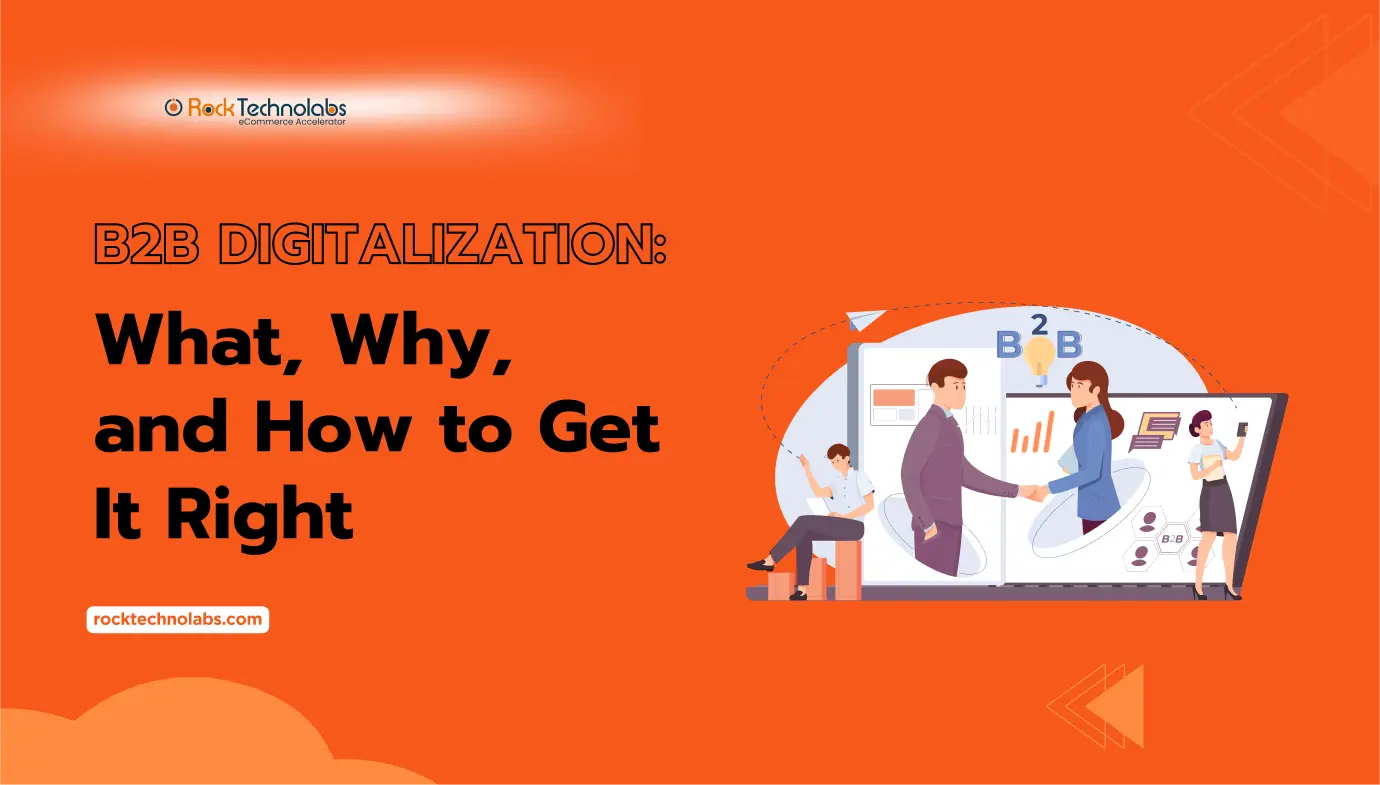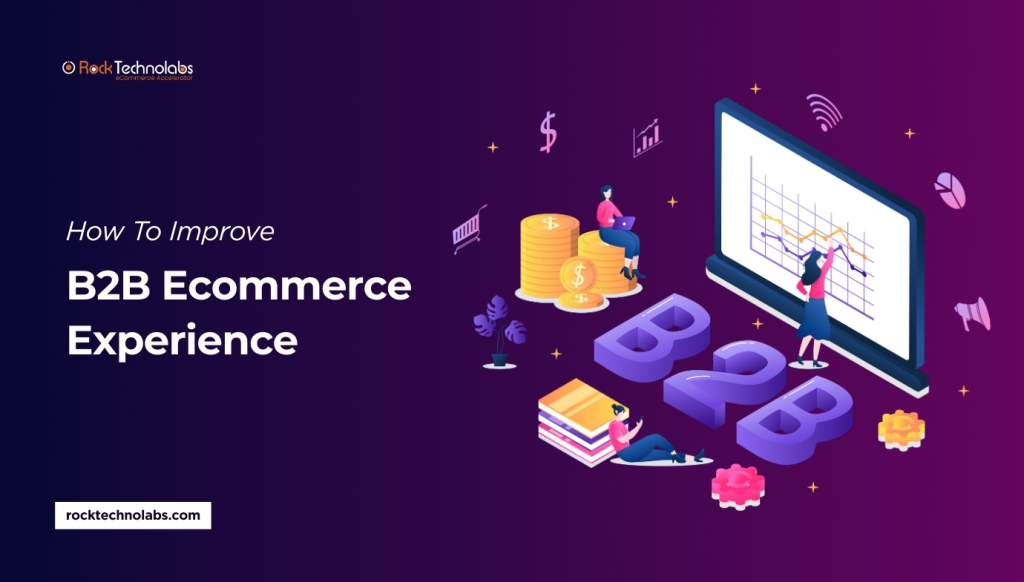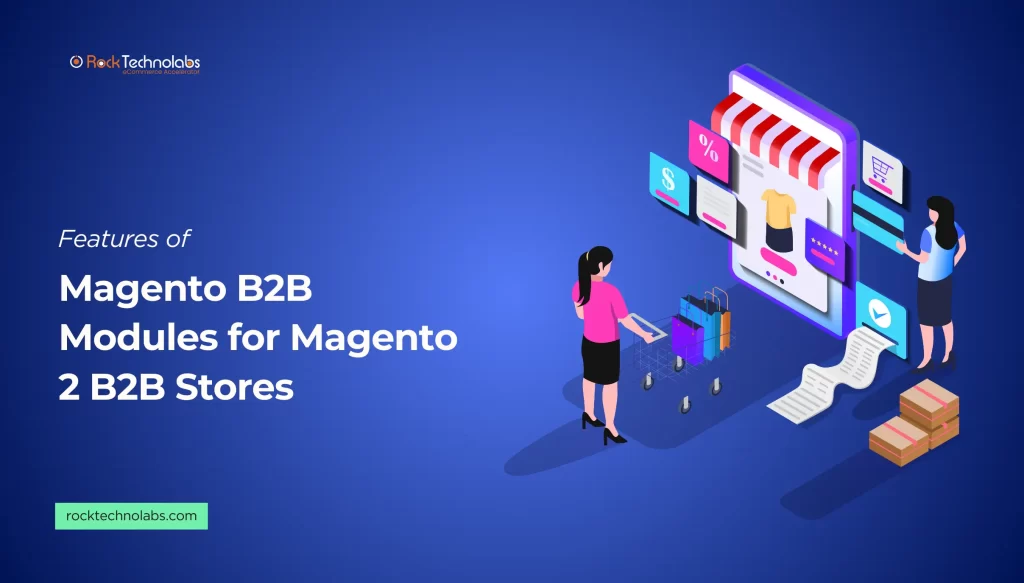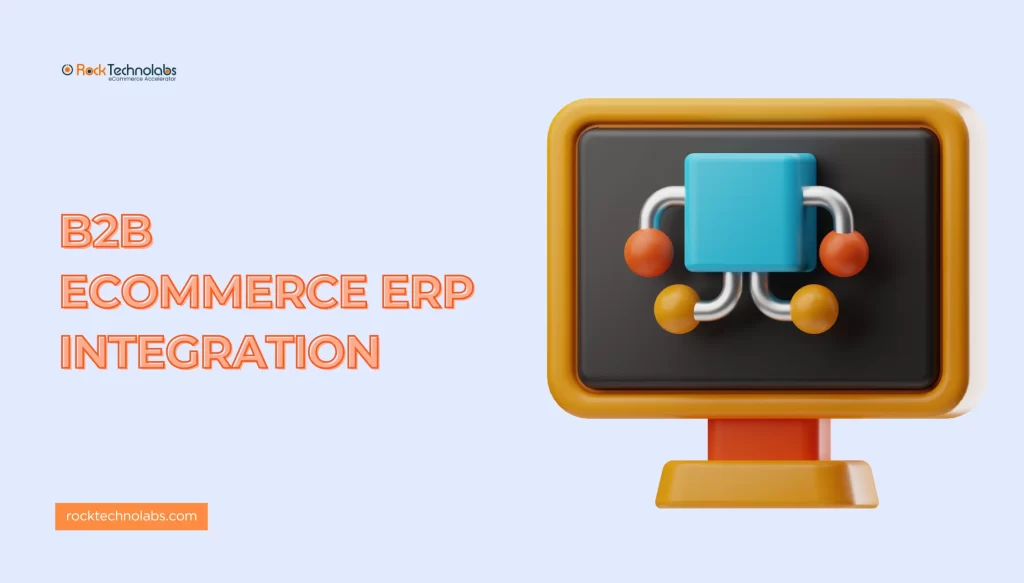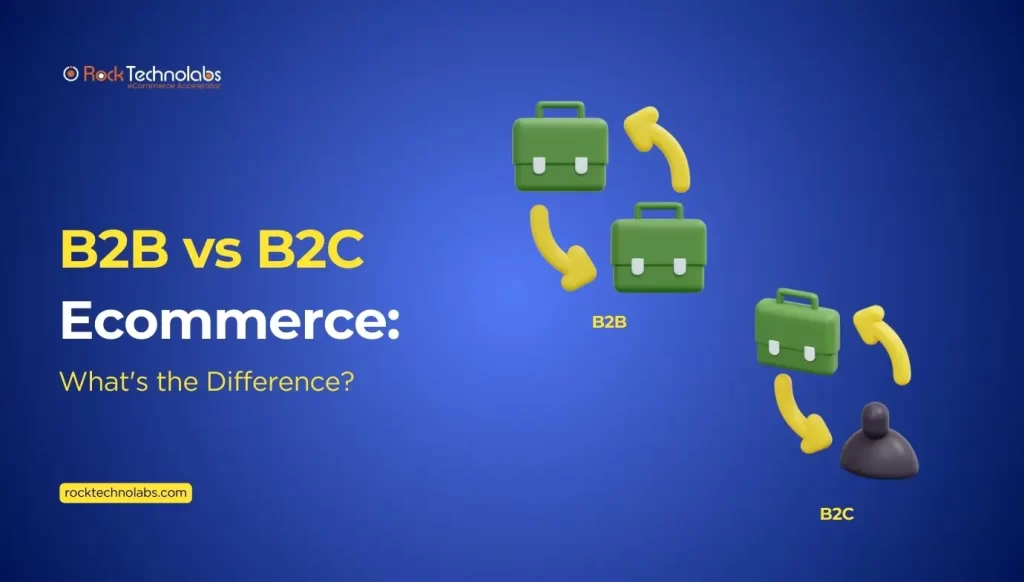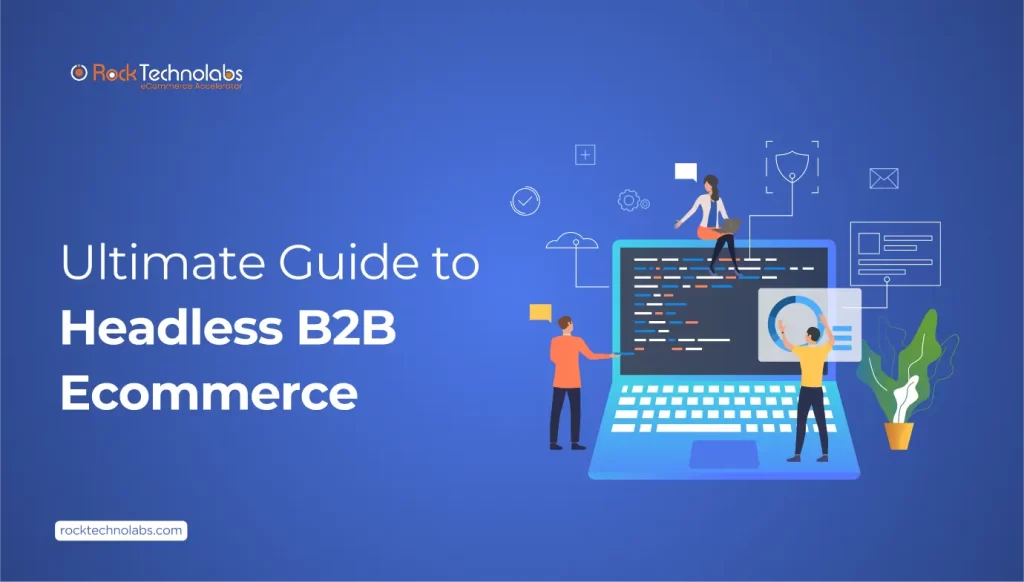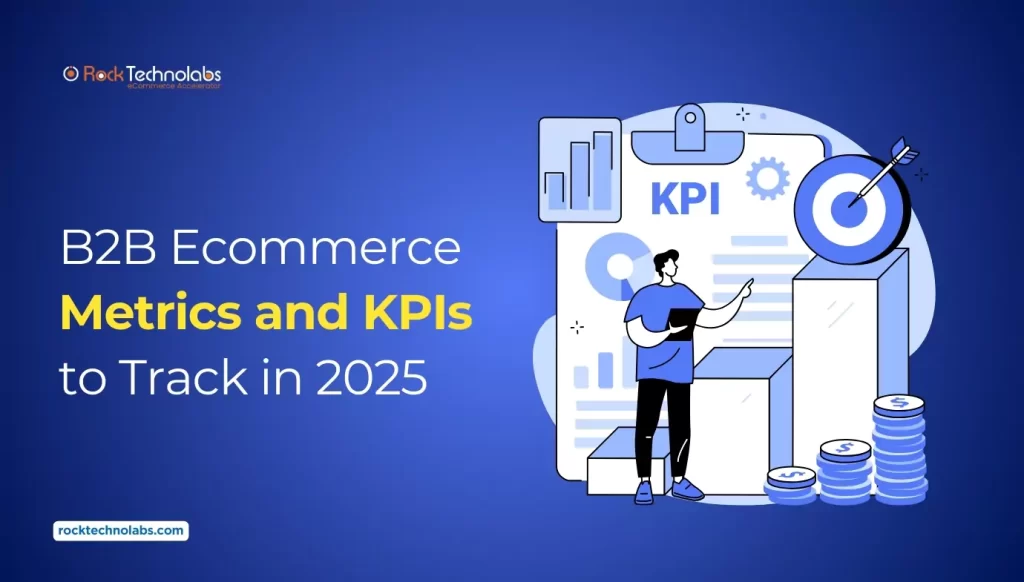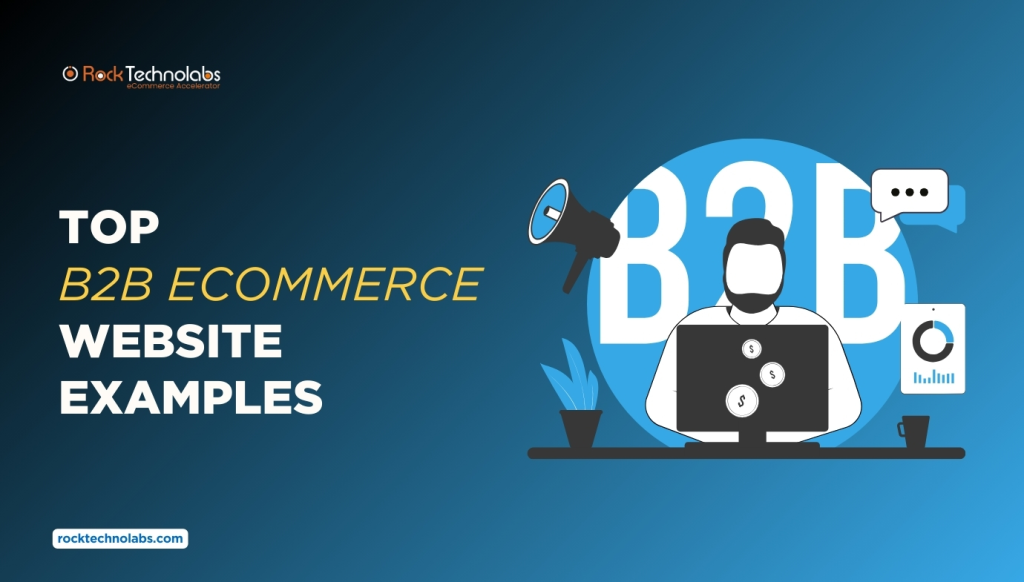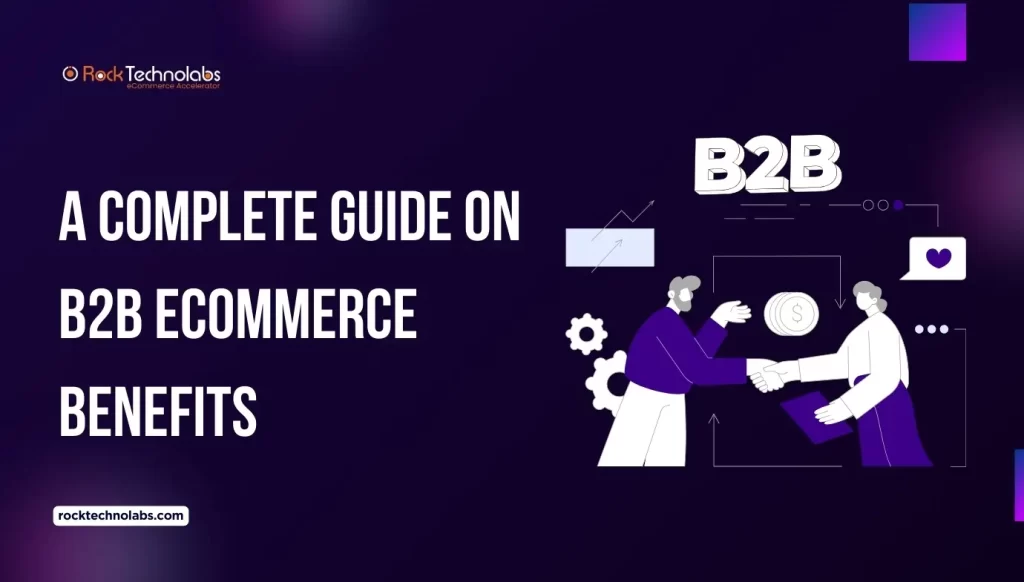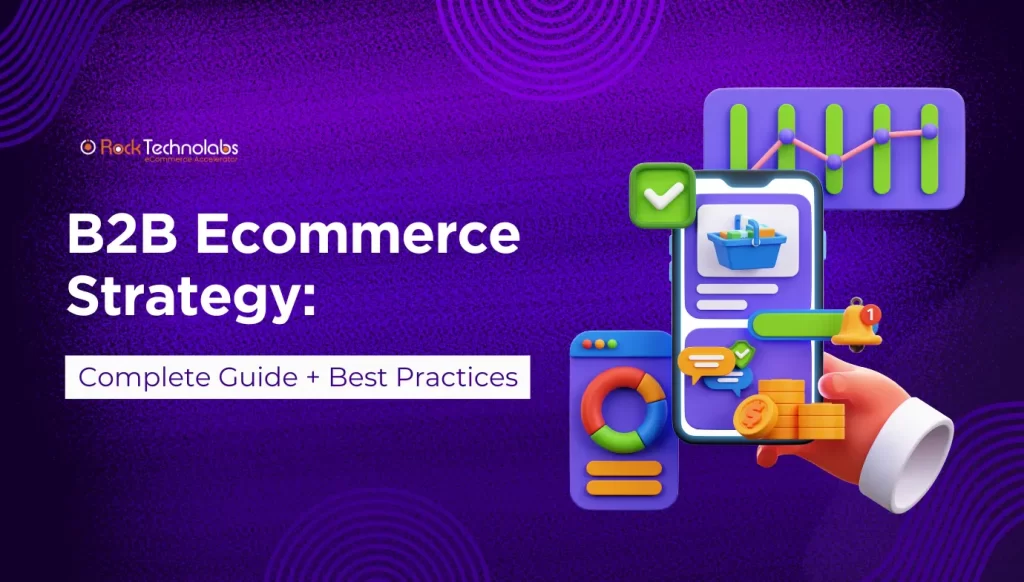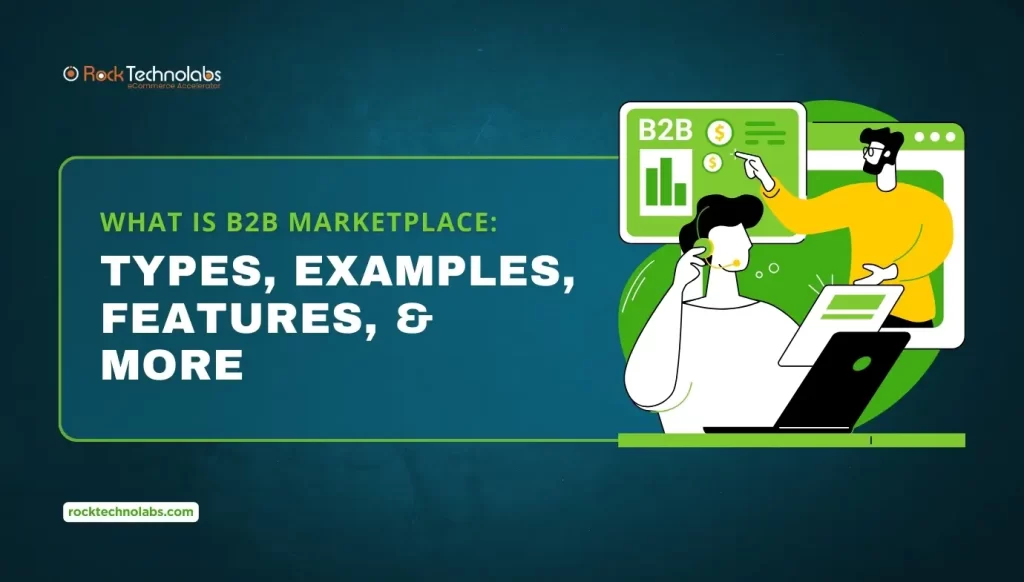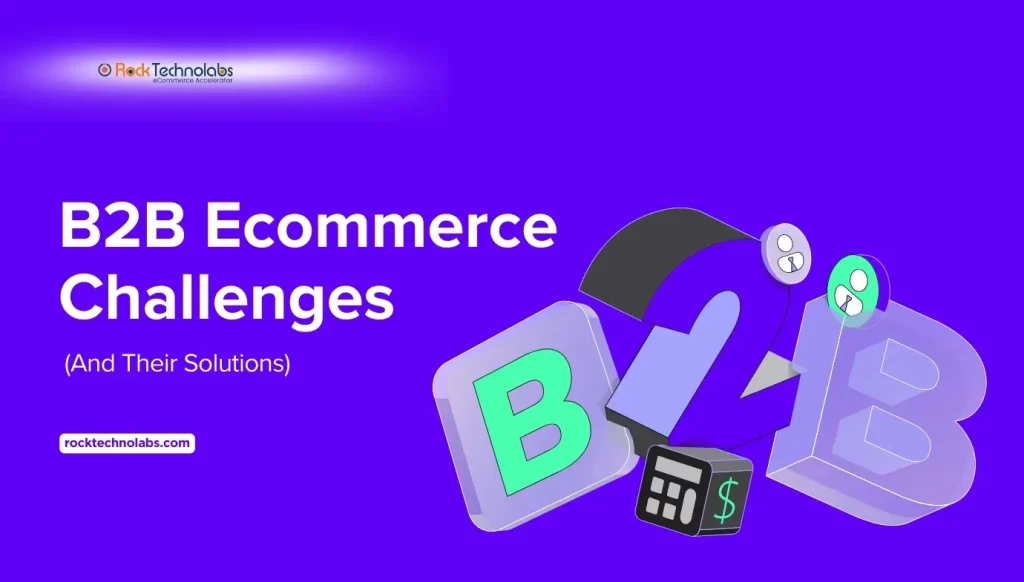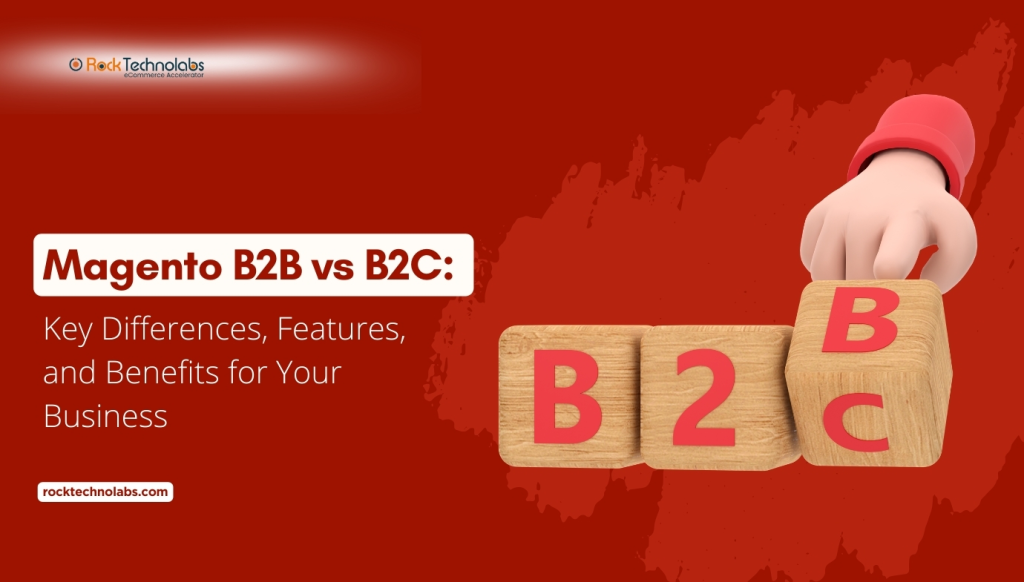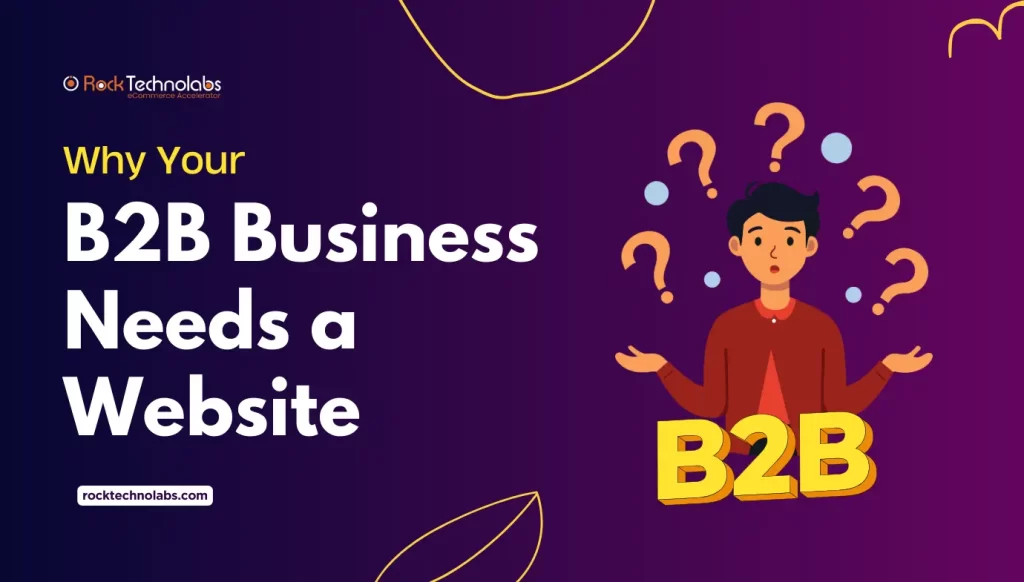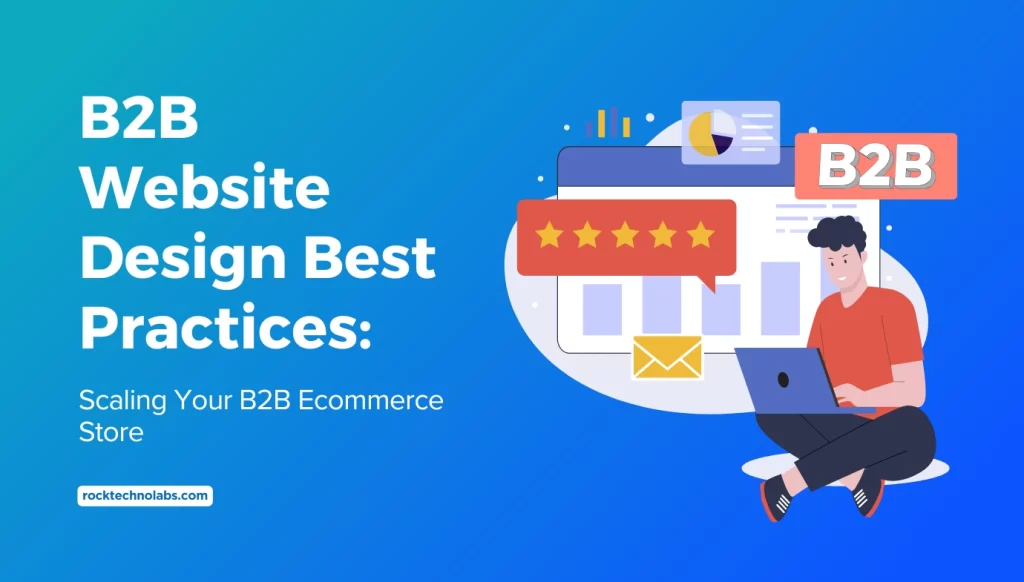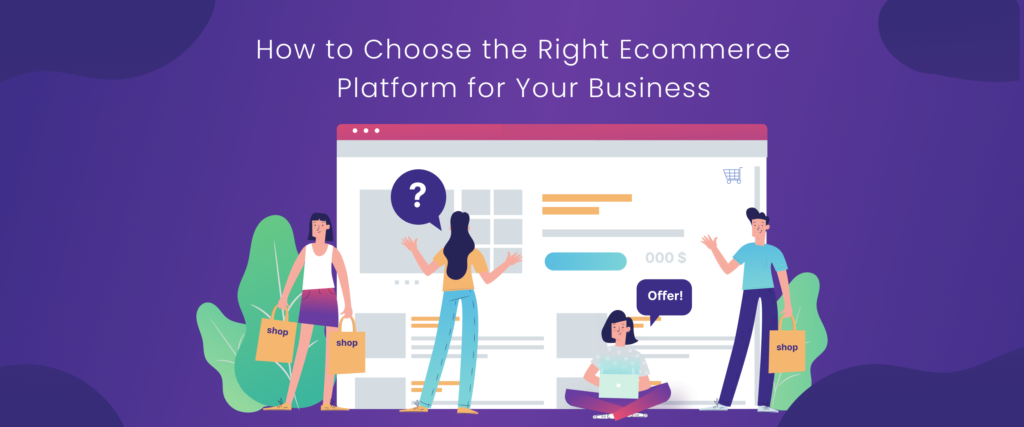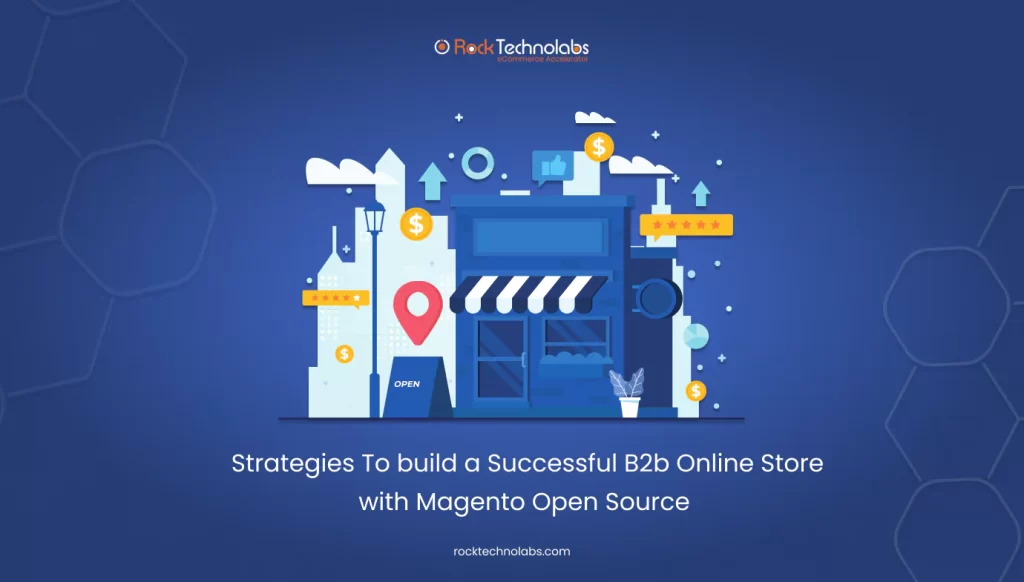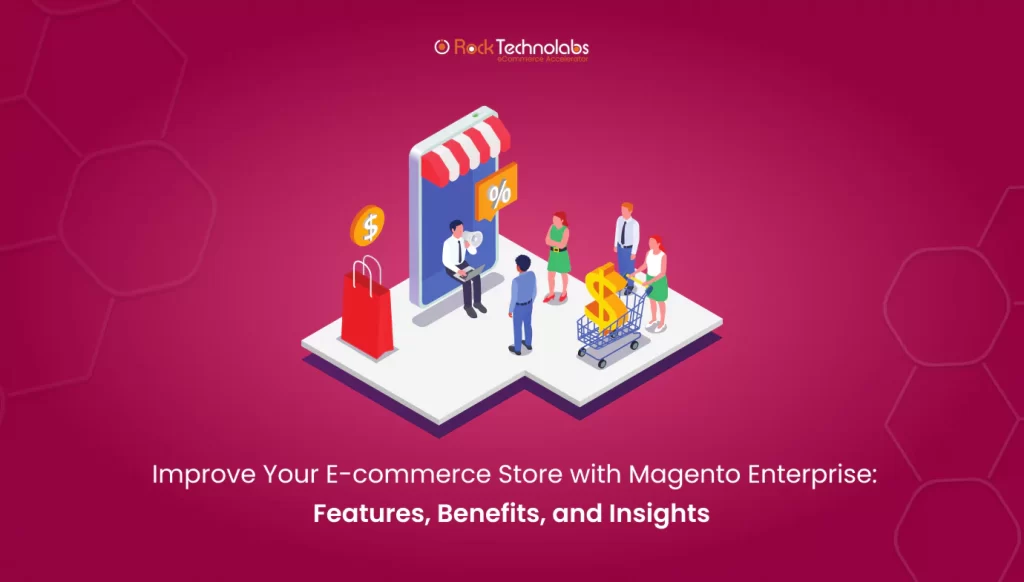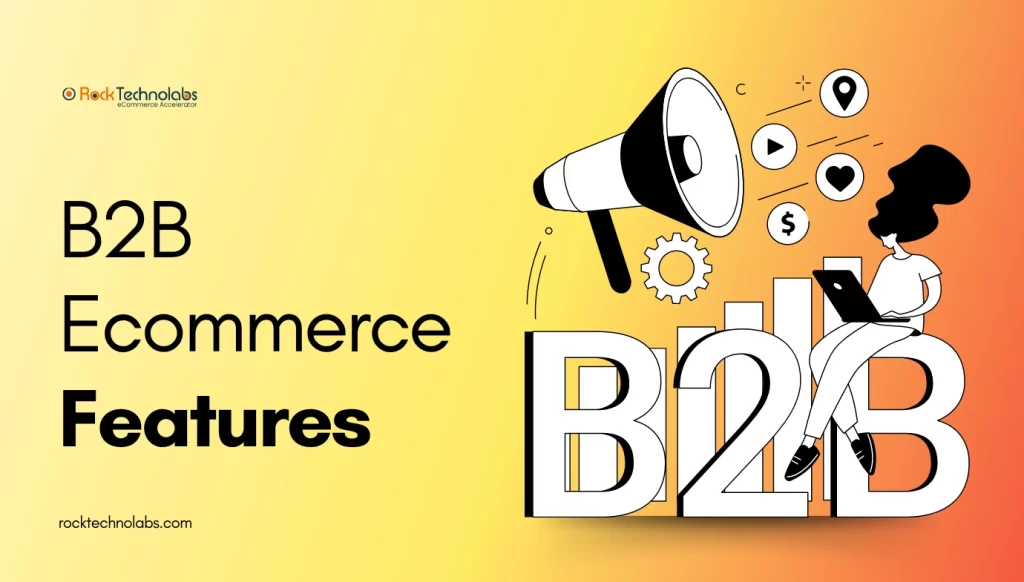Today, digitalization is everywhere – and now it’s not only a buzzword or a word. It’s much more than that.
Every day we encounter the term “Digitalization” but have you ever thought, why exactly?
Demand for online transactions and online shopping is increasing day by day, so B2B businesses must meet the demand for digital experiences.
Digitalization has rapidly changed global business norms. It has changed multiple industries for good, and so has the B2B industry. For B2B, this digital shift is more important than ever.
One of the core reasons for the overall shift in the entire B2B landscape is the move toward Digitalization.
And if we talk about numbers then according to the McKinsey report, more than 70% of B2B decision makers prefer remote human interactions and digital self service over interacting with suppliers’ sales representatives.
This change marks a significant shift in the way B2B companies operate, market to, and expand.
What do you think? Is your business ready to take the digital leap?
In this guide, we’ll explore:
- What does B2B digitalization mean?
- Why it’s important
- How to effectively adopt it to stay ahead of the curve
- Key components of B2B digitalization
- Benefits of B2B digitalization
- And much more…!
What Is B2B Digitalization?
B2B digitalization refers to a new connected world, where all B2B companies quickly adapt to ever-increasing expectations of B2B individuals – enabled and shaped by technology.
This process includes the use of digital tools and technologies to change the business model and transform interactions, business operations, and customer experiences in a B2B environment.
Digital tools such as eCommerce platforms, Social Media, Analytics, CRM systems, and automated workflows are used to enhance efficiency and drive growth.
Importance of Digitalization in B2B Markets
Technology is valuable. It speeds things up, brings efficiency to repetitive tasks, and illuminates patterns too hard to spot with the naked eye.
B2B Digitalization should be embraced.
B2B digitalization is important for businesses to:
1. Stay Competitive
- 80% of B2B decision-makers prefer digital interactions (Source)
- Digitalized businesses outperform peers by 20% (Gartner)
2. Meet Customer Expectations
- 70% of B2B buyers expect personalized experiences (Source)
3. Enhance Efficiency
- Automation reduces manual errors
- Streamlined processes boost productivity by 20% (McKinsey)
4. Drive Revenue Growth
- 56% of CEOs said that digitalization increases revenue and improves profit (Gartner)
- E-commerce platforms expand customer reach
5. Improve Decision-Making
- Data analytics provides actionable insights
- Real-time market trends and customer behavior analysis
6. Foster Innovation
- Emerging technologies (AI, IoT, blockchain) enable new business models
- Collaborative digital platforms drive innovation
7. Mitigate Risks
- Cybersecurity measures protect sensitive data
- Compliance with digital regulations
What Are the Types of B2B Digitalization?
B2B digitalization can take many forms, each offering unique opportunities for growth and efficiency.
Here are some key types:
| Digital Tool/Technology | Function | Optimization Benefits |
| Ecommerce Platforms | Enables online transactions, inventory management, and automated order processing | 24/7 availability, faster transactions, reduced manual errors, and enhanced customer experience |
| CRM Systems | Manages customer interactions, tracks leads, and stores customer data | Personalized communication, improved customer retention, streamlined sales pipeline, and better data-driven decisions |
| ERP Systems | Integrates core business processes (finance, HR, inventory, etc.) into a single system | Real-time data access, enhanced collaboration, reduced operational costs, and improved resource planning |
| AI & Machine Learning | Predicts trends, analyzes customer data and automates tedious tasks | Aata-driven marketing strategies, process automation, proactive customer service, and improved customer insights. |
| Cloud Computing | Provides remote data storage, software applications, and computing power | Scalability, flexibility, easy data access from any location, and reduced IT infrastructure costs |
| Data Analytics | Collects and analyzes data from various business activities | Better decision-making, insights into customer behavior, market trend identification, and performance tracking |
| Marketing Automation Tools | Automates email marketing, lead scoring, and segmentation | Improved lead nurturing, personalized customer engagement, efficient use of resources, and increased conversion rates |
| Supply Chain Management Software | Optimizes supply chain operations from procurement to delivery | Real-time tracking, reduced lead times, inventory optimization, and improved supplier relationships |
| Customer Portals | Offers clients a self-service platform to manage their accounts, track orders, and access support | Enhanced customer convenience, reduced support load, and streamlined communication with clients |
What Are the Benefits Of B2B Digitalization?
B2B digitalization offers numerous benefits to companies that embrace it.
A few of them are:
1. Operational Efficiency
- Automated processes
- Streamlined supply chain management
- Enhanced inventory tracking
- Reduced manual errors
2. Enhanced Customer Experience
- Personalized engagement
- Omnichannel support
- Real-time responsiveness
- Self-service options
3. Revenue Growth
- Expanded customer reach
- E-commerce platforms
- Digital Marketing
- Data-driven insights
4. Data-Driven Decision-Making
- Advanced analytics
- Real-time market trends
- Customer behavior analysis
- Predictive modeling
5. Innovation and Competitiveness
- Emerging technologies (AI, IoT, Blockchain)
- Collaborative digital platforms
- Faster time-to-market
- Competitive advantage
6. Cost Savings
- Reduced operational costs
- Lower infrastructure expenses
- Minimized manual labor
- Optimized resource allocation
7. Risk Management
- Enhanced cybersecurity
- Compliance with digital regulations
- Data backup and recovery
- Business continuity planning
8. Strategic Benefits
- Improved scalability
- Enhanced agility
- Better supply chain visibility
- Increased collaboration
What Are the Key Components of B2B Digitalization?
In order to successfully integrate digitalization in a B2B environment, companies must focus on a few key elements:
- Ecommerce platforms: Providing a virtual storefront where customers can conveniently place orders whenever they want.
- CRM systems: Consolidating client data and interactions to optimize sales processes. Also helps in managing relationships, tracking interactions, and gaining insights into client needs.
- Automation Tools: Automating manual processes such as supply chain management, order processing, and invoicing. This will enhance customer support, streamline repetitive tasks, and improve decision-making.
- Data analytics: Analyze consumer data and make informed decisions by using AI and machine learning.
What Are the Challenges in B2B Digitalization?
Below listed are a few of the challenges faced in digital transformation for b2b businesses:
Internal Challenges
| Legacy System Integration | Incorporating new technology with existing infrastructure. |
| Data Quality & Management | Ensuring accuracy and consistency. |
| Change Management | Aligning organizational culture and employee mindset. |
| Skill Gap | Upskilling employees for digital literacy. |
| Budget Constraints | Allocating resources for digital transformation B2B. |
External Challenges
| Cybersecurity Threats | Protecting sensitive data. |
| Competition and Disruption | Adapting to market shifts and trends. |
| Customer Expectations | Meeting heightened demands for personalized experiences. |
| Regulatory Compliance | Adjusting to new rules and legislation. |
| Supply Chain Complexity | Managing digitalized logistics and procurement. |
Operational Challenges
| Process Automation | Streamlining workflows. |
| Digital Payment Security | Ensuring secure transactions |
| Globalization & Localization | Balancing standardized & tailored approaches. |
| Data Analytics | Making informed decisions. |
| Technology Selection & Implementation | Choosing the right tools. |
Strategic Challenges
| B2B Digital Transformation Roadmap | Defining clear objectives. |
| Innovation and Experimentation | Promoting a culture of innovation. |
| Collaborations and Partnerships | Establishing strategic partnerships. |
| Measuring ROI and Performance | Evaluating digitalization success. |
| Staying Agile and Adaptable | Embracing continuous improvement. |
6 Strategies for B2B Digitalization Success
The below listed practical tips will help your Business-to-business (B2B) business thrive in the digital era:
Strategy #1: Define a Clear Digitalization Roadmap
- To identify which areas are ready for digitalization, conduct a comprehensive business assessment.
- Set measurable goals and objectives that are specific and clearly defined.
- Form a cross-functional team to manage this digital transformation.
- Allocate necessary resources and budget.
- To stay on track, review and adjust your roadmap on a regular basis.
Strategy #2: Transform Your Business With Robust Ecommerce Platform
- It’s better to invest in an eCommerce platform that is not only robust but also flexible and scalable (like Magento, Shopify, etc.) that offers great eCommerce B2B features and functionalities like inventory tracking, bulk ordering, and custom pricing.
- This will enhance customer experience, simplify the ordering process, increase efficiency, improve data analysis, and boost revenue.
Strategy #3. Use Data Analytics To Make Informed Decisions
- Implement robust data collection and analytics tools to monitor and evaluate customer behavior, sales performance, and market trends.
- Combine data from various sources such as marketing, sales, and customer interactions.
- For strategic and operational improvement, you need to analyze KPIs and identify the trends.
- Leverage data analytics to fuel informed decision-making in marketing, product development, and customer engagement, driving business growth and personalized experiences.
Strategy #4. Power Of CRM and Personalization
- Map customer journeys to identify pain points and opportunities.
- Take the help of email, social media and websites to create personalized, and omnichannel experiences.
- Spend on user experience (UX) design for intuitive, engaging interactions.
- Use chatbots to provide efficient customer support.
- By managing and personalizing customer interactions with a CRM system, you can increase customer satisfaction and build closer bonds with your customers.
Strategy #5. Automate Repetitive Processes
- Identify manual processes ripe for automation (e.g., invoicing, inventory management, customer support).
- Implement workflow automation and digital tools like ERP systems and chatbots.
- Streamline supply chain operations with digital logistics and procurement platforms.
- Monitor and optimize automated processes for continuous improvement.
Strategy #6. Use an Omnichannel Strategy To Ensure Seamless Engagement
To provide a flawless customer experience, utilize omni channels like integrating social media, email, and live chat into your marketing and customer service plans.
Wrapping Up
To wrap it up, for the year 2024 and beyond, each B2B business owner in a given segment should consider these benefits, techniques, challenges and opportunities in the digital era. Staying ahead in today’s competitive market requires going digital.
Still, is your business using outdated systems and procedures?
If yes then you are still not fully embracing B2B digitalization!
Being a B2B business owner if you’re seeking long-lasting growth then you must adopt this inclusive model that emphasizes customization, excellence, and interactivity.
These days, increasing operational effectiveness, improving customer experiences, and setting up your business for long-term growth all depend on utilizing E-commerce tools and strategies. Digitalization B2B has many advantages, from CRM systems to eCommerce platforms, such as improved agility, data-driven decision-making, and the capacity to meet and exceed customer expectations.
With years of experience and a proven track record in Shopify and Magento eCommerce B2B development, Rock Technolabs provides tailored solutions to meet your unique needs.
Our expertise includes specialized Magento B2B digitalization services, empowering your business to leverage the latest tools and technologies for long-term success.
Ready to transform your B2B business?
Contact Rock Technolabs today for a personalized consultation on B2B digital solutions.


